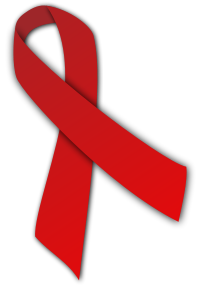
Photo from wikipedia
Significance Because dengue viruses are spread by mosquitoes during biting, transmission capacity depends on mosquito-biting behavior. For this reason, it is critical to understand how infection in mosquitoes influences biting.… Click to show full abstract
Significance Because dengue viruses are spread by mosquitoes during biting, transmission capacity depends on mosquito-biting behavior. For this reason, it is critical to understand how infection in mosquitoes influences biting. To answer this question, we deployed a multidisciplinary approach including high-resolution, multivariate biting behavior monitoring on mice, in vivo transmission assay, and mathematical modeling. We demonstrated that infected mosquitoes are more attracted to mice and bite more often to get the same amount of blood as uninfected mosquitoes. While the effect of increased attraction to host on transmission capacity is trivial, we showed that increased number of bites results in successive transmission. Eventually, we calculated that the infection-induced behavior changes tripled transmission capacity of mosquitoes. Mosquito blood-feeding behavior is a key determinant of the epidemiology of dengue viruses (DENV), the most-prevalent mosquito-borne viruses. However, despite its importance, how DENV infection influences mosquito blood-feeding and, consequently, transmission remains unclear. Here, we developed a high-resolution, video-based assay to observe the blood-feeding behavior of Aedes aegypti mosquitoes on mice. We then applied multivariate analysis on the high-throughput, unbiased data generated from the assay to ordinate behavioral parameters into complex behaviors. We showed that DENV infection increases mosquito attraction to the host and hinders its biting efficiency, the latter resulting in the infected mosquitoes biting more to reach similar blood repletion as uninfected mosquitoes. To examine how increased biting influences DENV transmission to the host, we established an in vivo transmission model with immuno-competent mice and demonstrated that successive short probes result in multiple transmissions. Finally, to determine how DENV-induced alterations of host-seeking and biting behaviors influence dengue epidemiology, we integrated the behavioral data within a mathematical model. We calculated that the number of infected hosts per infected mosquito, as determined by the reproduction rate, tripled when mosquito behavior was influenced by DENV infection. Taken together, this multidisciplinary study details how DENV infection modulates mosquito blood-feeding behavior to increase vector capacity, proportionally aggravating DENV epidemiology. By elucidating the contribution of mosquito behavioral alterations on DENV transmission to the host, these results will inform epidemiological modeling to tailor improved interventions against dengue.
Journal Title: Proceedings of the National Academy of Sciences of the United States of America
Year Published: 2022
Link to full text (if available)
Share on Social Media: Sign Up to like & get
recommendations!